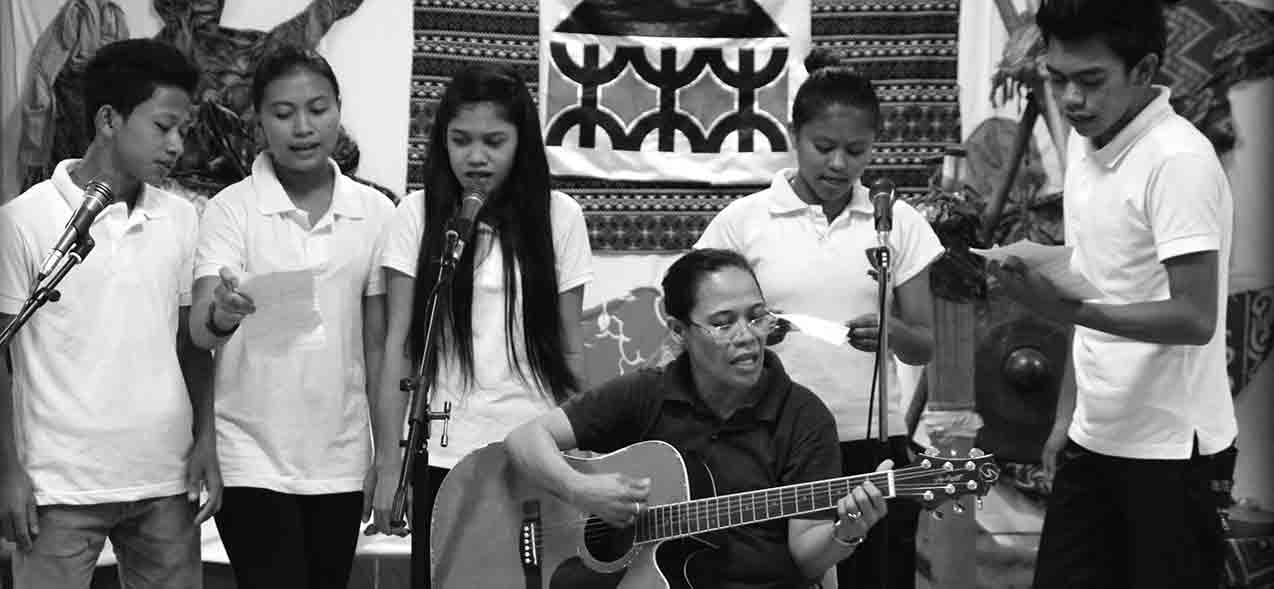Forty youth and community leaders gathered in the Holy Trinity Parish Church in Sampaloc, Manila on February 25, 2019 to discuss the implication of confining child offenders as young as nine years old in juvenile detention homes as proposed by the House of Representatives. The activity was organized by Pagkakaisa ng Sambayanan ng Balic-Balic (Pasamba) – an association of residents who live in areas where children who subsists in the streets or loiter in public spaces are at risk of being accosted by authorities in line with the government’s campaign against criminality and illegal drugs.
The forum coincided with the nationwide commemoration of the ouster of the Marcos dictatorship by the renowned People Power uprising 33 years ago. The forum organizers said they intend to gather signatures around their neighbourhoods in time for the upcoming national elections in May and ask lawmakers not to go ahead with their plan to amend the Juvenile Justice and Welfare Act which set the current age of criminal responsibility at 15 years old.
Balay’s program coordinator Kaloy Anasarias, who served as a resource person in the forum, said that lowering the age of criminal responsibility might actually not deter commission of the crime because the criminals will simply deploy other children who are below 12 years old to sustain their illegal activities. He added that, while the language of the proposed law talks about reforming child offenders, the measure actually intends to deprive young children of their liberty in facilities that have been declared even by officials of the Juvenile Justice and Welfare Council as worse than regular jail.
According to the Pasamba Chairperson Ricardo Galang, the move of legislators to amend the law would open the flood gates of abuse against minors who are mostly victims of neglect, abuse, and exploitation on the first place. Citing studies of the Philippine Pediatric Society and the Psychological Association of the Philippines, he said that scientific evidence show that very young children hardly have any capacity to discern, that is the ability to exhibit keen insight and good judgment. Hence, they lack the capacity to thoroughly consider their actions and can be easily manipulated and exploited by predatory adults. Putting in detention very young children in conflict with the law would only aggravate their victimization and may deepen their psychological wound that might scar them for life.
The idea to lower the age of criminal responsibility from 15 years old to nine years old was suggested by President Duterte himself. In his speeches, he declared that drug syndicates have been using minors as runners or mules in their drug trade and called on authorities to undertake stringent measures to curb this practice. The aggressive police actions against illegal drugs have lead to the summary execution of a 17-year old student in Caloocan City last year.
In keeping with President Duterte’s wishes, the House Committee on Justice approved the bill that would lower the minimum age of criminal responsibility from 15 years old to 9 years old on January 21 – a move that seeks to amend Republic Act (RA) 10630, the law that currently retains the minimum age of criminal liability at 15 but allows children as young as 12 to be detained in youth care facilities or Bahay Pag-asa (House of Hope) for serious crimes only such as rape, murder, and homicide, among others.
RA 10630 previously amended RA 9344 or the Juvenile Justice and Welfare Act of 2006, which sets the age of criminal responsibility at 15 years old.
The House bill, should it become a law, would mandate that children 9 to 14 years old who will commit serious crimes – such as murder, parricide, infanticide, serious illegal detention, carnapping, and violation of the Comprehensive Dangerous Drugs Act of 2002 – be subjected to "mandatory confinement" for rehabilitation at Bahay Pag-asa. The bill also seeks to impose a penalty that will be two degrees lower compared to when an adult has committed the crime. But if the children commit an offense where the punishment is equal to life imprisonment, they would face only up to 12 years imprisonment.
The Senate, for its part, has failed to pass its own proposal of lowering the age of criminal responsibility from 15 to 12 years old before going on a break for the campaign period for the May elections. The Commission on Elections (Comelec) set the campaign period for senatorial and party-list candidates from Feb. 12 to May 11. The Senate Committee on Justice and Human Rights could still deliberate on the issue when session resumes after the elections. The Senate committee has also recommended the raising of penalty for parents whose child, aged 12 but below 18 years, commits serious crimes.
According to Anasarias, putting a young child in detention does not conform with the principle of restorative justice which is the framework in which the existing juvenile justice law operates. He said that, under the current law, a child who may have been implicated in some unlawful offense could be subjected to a diversion program which treats him not as a criminal but as a child in conflict with the law.
He added that instead of amending the existing law, the local government units would do well by implementing fully the Juvenile Justice and Welfare Act by proving adequate resources and enlisting more social workers and implementing child protection and development programs in the communities where a notable number of children at risk are living.
























